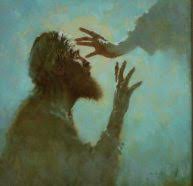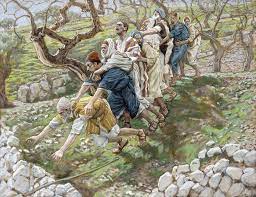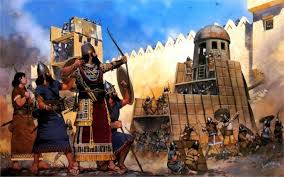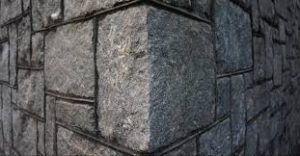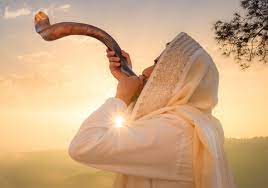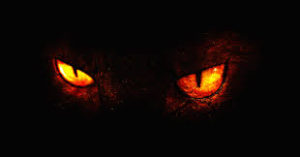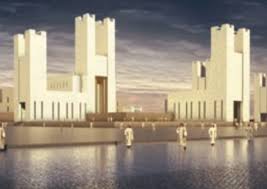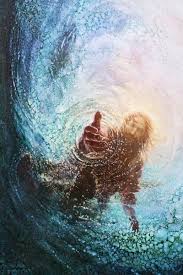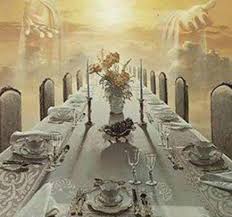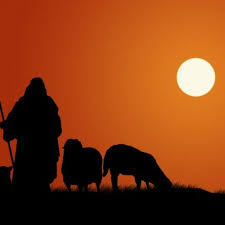Fs – Woe to the Obstinate Children, Declares the LORD 30: 1-7
Woe to the Obstinate Children, Declares the LORD
30: 1-7
Woe to the obstinate children, declares the LORD DIG: What is the basic problem with their desire to form an alliance with Egypt against Assyria? How would you feel as one of Judah’s ambassadors to Egypt, when Isaiah approaches your caravan and gives you this oracle? How does the nickname, Egypt the Do-Nothing, contrast with the description of God throughout these chapters?
REFLECT: Judah’s shame is repeated three times here. She looked for the right thing (security), but in the wrong place (an alliance with Egypt). What are some of the wrong places you have hoped to find the right things like security, love, and acceptance? When was the last time you went against God’s will even though you knew better? Judah eventually ended up in bondage. How about you?
In the eighth century BC, Egypt was long past its prime. After about 1000 BC, it was never again a dominant force in the ancient Near East. After its heyday, Egypt was ruled first by the Libyans from the west. After that, by the Nubians from the south; they seemed to lack the energy or the initiative to rule on their own. Thus, Egypt appeared to be powerful but really was not. We do not know how obvious that was, although from the remarks made by the field commander in 36:6, the Assyrians seemed to recognize it. In any case, those with spiritual discernment recognized the situation: Isaiah and Jeremiah both recognized it.
That is the kind of discernment we need. Are those on whom we are tempted to rely on just as weak as we are, though giving a good appearance? Do they have our best interests at heart or only their own? Are we relying on them as a way to avoid the risk of trusting God? Have we sought the guidance of those with spiritual discernment concerning the relationship? Have we sincerely sought ADONAI’s guidance? In many cases destructive relationships are clear to those around us. Our problem, like the Judeans, is that we are afraid to let go of the splintered reed (36:6) and so do not allow ourselves to look at the situation with true discernment. If we would first let go of it emotionally and spiritually, God would open our eyes to its dangers.102
Chapters 30 and 31 center on the foolishness of attempting to make an alliance with Egypt to ward off the Assyrian threat. Egypt was waning as a world power and could be of no real assistance to Judah in her fight against the strong Assyrian empire. But a strong faction in Judah wanted to seek aid from Egypt, rather than turning to God for protection. This is the third woe in the Book of Woes.
The woe was pronounced against those in Judah who wanted to form a near historical alliance made with Egypt. The prophet spoke to those people as if they were children, and obstinate children at that. Woe to the obstinate children, declares the LORD, to carry out plans that are not mine, forming an alliance, but not by My Spirit, heaping sin upon sin (30:1). Like children, they did not have the proper perspective to know what was best for them. Desperate to save themselves and their nation, they were forming plans, but they were not God’s plans. When ADONAI made His Covenant with Isra’el, she was a child of God. Once in the Land she should have become an adult, but she had not grown up. Because of her rebellious nature in forming an alliance with Egypt she was acting like an obstinate child.
God’s word concerning alliances with Egypt was very clear. They were forbidden (Exodus 13:17; Deuteronomy 17:16; Ezeki’el 17 and 19:4). They didn’t need a new word from ADONAI, they only needed to obey the one they had. Any alliance with Egypt would involve the recognition, if not the worship, of the Egyptian gods. But the mind that is set on this world’s ways cannot see the wisdom of God’s way (First John 2:15-17). To it, rebellion is not rebellion but merely common sense. Therefore, the Spirit did not lead the decision by King Hezekiah. The reason it was like heaping sin upon sin was because the original idea of rebellion against Assyria was sin, and now aligning with Egypt only adds to their sin. And finally, by going down to Egypt, they were ignoring God’s prophet Isaiah . . . yet another sin.
Those who went down to Egypt without consulting ADONAI were looking for help from Pharaoh. Hezekiah and the leaders of Judah had not consulted with Isaiah before or after making their plans. They most likely knew they wouldn’t get the answer they wanted (Second Timothy 4:3). Instead of looking to God for protection, they looked to Egypt’s shade for refuge (30:2). The woe was pronounced because Hezekiah was making this covenant for the purpose of security, hoping at long last to escape the dominance of Assyria. It was a woe because of its disastrous results.
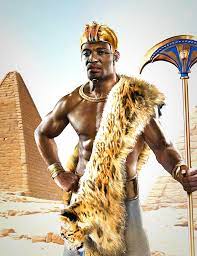
But to Pharaoh’s protection will be to your shame, Egypt’s shade will bring you disgrace (30:3). Her time as a world power was over. Shabako, the Pharaoh at that time, was a Nubian, not even an Egyptian. Egypt did not even have the cultural strength to produce her own leadership, let alone protect anybody else’s. So, Isaiah says that to lean on the staff of Egypt was to bring disgrace to Judah. Later Sennacherib’s field commander would mock the Jewish delegation on the walls of Jerusalem when he said: On whom are you depending that you rebel against me? Look now, are you depending on Egypt that splintered reed of a staff, which pierces a man’s hand and wounds him if he leans on it! Such is Pharaoh king of Egypt to all who depend on him (36:5b-6). Tragically, they had rejected to trust in the LORD who would not have failed them and, instead, aligned themselves with Pharaoh, who most assuredly would.
The whole basis of our faith is summed up in Jesus’ words in the garden of Gethsemane: Yet not what I will, but what you will (Mark 14:36). Only one who is absolutely convinced of ADONAI’s good intentions toward him or her can say those words. All others are doomed to distrust the LORD and believe that their will is better than His, that they, the pot, know better than the Potter (29:16).
The Jews even sent a delegation to two Egyptian cities – Zoan and Hanes – to talk about the alliance. But the talks were doomed before they left Judah. Though they have officials in Zoan and their envoys have arrived in Hanes (30:4). The two cities, Zoan (Zo – long o – an), and Hanes (Hawn – ness) are two cities in the Nile Delta region in Egypt. But, Isaiah says, no matter how strong the covenant is made, it is doomed to failure because everyone in Judah will be put to shame because of a people useless to them, who bring neither help nor advantage, but only shame and disgrace (30:5). ADONAI had already said many times through Isaiah that God would use Assyria to wipe out the northern kingdom of Isra’el and to punish the southern kingdom of Judah. So, to look to a crumbling empire like Egypt for help was useless. When this is all over with, Judah’s shame and disgrace will be all the more.
For the Judeans, their attempt to solve the Assyrian problem for themselves led them back into the very thing God told them not to do, to go back to Egypt, in spirit, at least (Hosea 7:11, 9:1-6). Ultimately, of course, some of them did return physically (Jeremiah Chapters 42-43). The same is often true for us. Our attempts to take care of ourselves lead us back into the very things from which God has delivered us in the first place.
The writer of Hebrews refers to this as the sin that so easily entangles (Hebrews 12:1). There are areas of our lives where we are particularly susceptible to temptation. When we refuse to trust God in some other area of our lives, perhaps one that appears totally unrelated, we effectively take ourselves out from under the protection of God and throw ourselves open to that old area of weakness. Oftentimes, we are weak there precisely because it is something that seems to offer us the pleasure or security of significance we think we must have. When we learn to trust God for these things and to find them in His ways, not ours, then we experience deliverance from the bondage of those old sins. But when we refuse to trust God in any area, we have cut off the power source and are thrown back onto all our old resources. So, it is not surprising that we are defeated at precisely the same points as we were before.103
Then Isaiah adds an oracle concerning the animals of the Negev (30:6a). This is an oracle of judgment. The previous verses merely emphasized the human planning that lay behind Egyptian alliance; here, we see the human cost. The point here is that Egypt’s help would prove to be worthless. The envoys traveling to Egypt loaded with treasures had to pass through the Negev, a desolate, dangerous area with wild desert animals. Judah’s people were so desperate for help that they were willing to risk hardship and go to great expense.
In Exodus 13:17 the LORD would not let His people travel through the Negev down through Philistia the shorter path from Egypt. I wonder if the ambassadors realized that they were traveling in the exact opposite direction of the exodus. Before, they traveled to freedom; but now they were traveling to slavery. But it wasn’t like they didn’t know better. God’s prophet, Isaiah, had warned them.
Through the land of hardship and distress, of lions and lionesses, of adders and darting snakes, the envoys carry their riches on donkeys’ backs, their treasures on the humps of camels (30:6b). The donkeys and camels of Judah were carrying the wealth of Judah for the purpose of purchasing the help of Egypt. Judah’s people were so desperate for help that they were willing to risk hardship and go to great expense. All this is done for nothing, because Egypt could not assist Judah in any way. At the battle of Carchemish, Nebuchadnezzar and his Assyrian army proved their superiority by routing the Egyptians.104
They carried their tribute to that unprofitable nation, to Egypt, who is utterly worthless. Literally, the Hebrew reads: Egypt, vanity and emptiness they will help. Isaiah graphically displays Egypt’s emptiness. Therefore, I call her Rahab the Do-Nothing (30:7b). That is why God names Egypt, Rahab the Do Nothing. The name Rahab is another name used for Egypt in Isaiah 51:9-10; Psalm 87:4; Psalm 89:10. The word Rahab can have two meanings. It can mean big mouth. What God is saying here is that Egypt is a big mouth that can do nothing. In its adjective form it can mean arrogance or agitator. God says Egypt sits in arrogance, or as an agitator of inactivity. As a proper noun it also means hippopotamus. They are big animals, and in this area you see them all the time, but what are they always doing? Nothing. You never see them do anything except open their big mouth. Just as Isaiah had prophesied, Egypt was no help at all.
Judah had lost the sense of her original purpose. ADONAI had told Abram that he would be made into a great nation. The God of Abraham, Isaac and Jacob said: I will make your name great, and you will be a blessing. I will bless those who bless you, and whoever curses you I will curse; and all the peoples on earth will be blessed through you (see my commentary on Genesis, to see link click Dt – I Will Bless Those Who Bless You and Whoever Curses You I Will Curse). She was supposed to be a godly example to those nations around her, not to sink back into worldly behavior.
In the town of Delburne, Alberta, there was an old water tower built in 1926. Standing empty, the building was bought by two men who wanted to turn it into a dining and cocktail lounge. Plans called for a bar to be built on the second floor. Something similar has already happened in various communities: that which was originally designed to provide the water of life has been “converted” into that which is providing resources detrimental to society. Schools were once thought of as sources of moral and spiritual benefit. In some cases, they now are fountains of agnosticism and atheism. Even churches, built to convey to men and women the water of life, are now the providers of everything but the Gospel.




